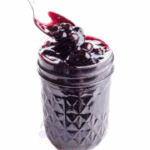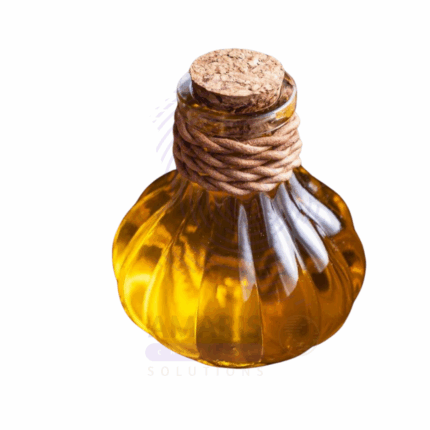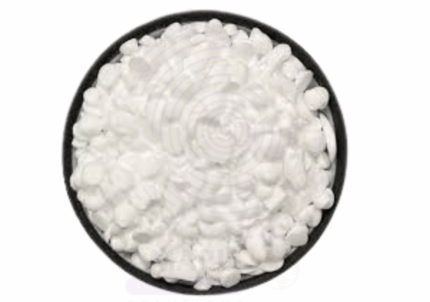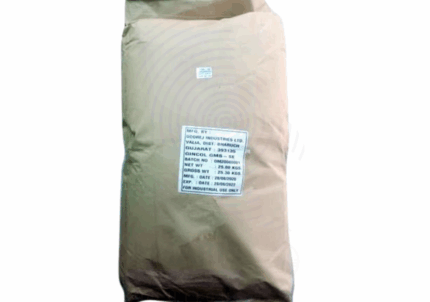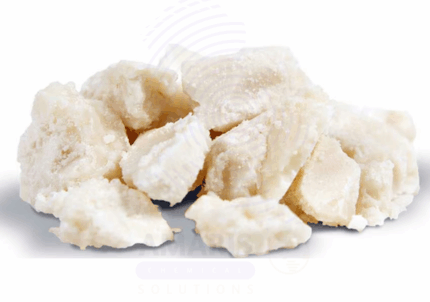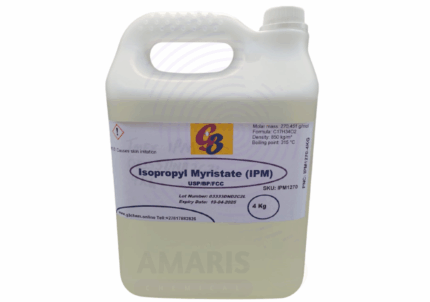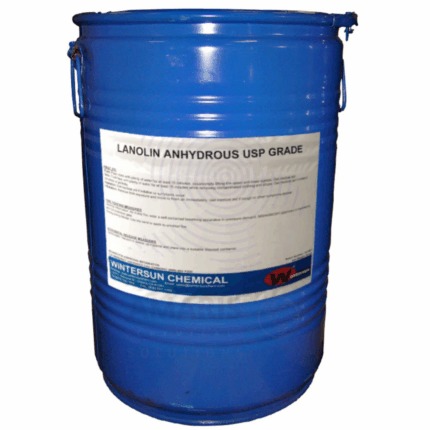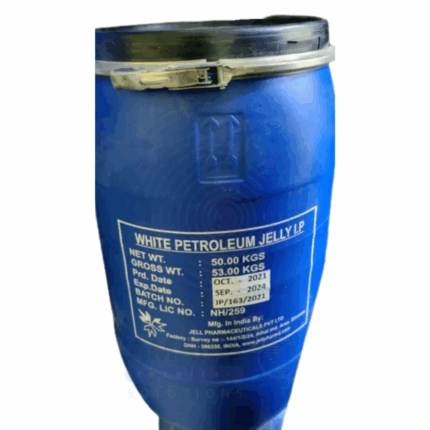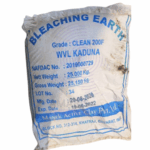
Coffee Butter
Coffee Butter is a natural, plant-derived fat extracted primarily from the coffee seed pulp or coffee cherry, sometimes from the coffee bean itself. It is a creamy, pale yellow to light brown solid at room temperature with a mild coffee aroma. Coffee Butter is rich in fatty acids, antioxidants, and vitamins, making it a valuable ingredient in cosmetics, skincare, and specialty food products. Known for its emollient, moisturizing, and antioxidant properties, Coffee Butter helps to nourish and protect the skin while providing a pleasant sensory experience. It is gaining popularity as a sustainable by-product of coffee processing, contributing to zero-waste initiatives.
Coffee Butter
Primary Uses
- Cosmetics & Personal Care
- Used as an emollient and moisturizer in body butters, creams, lotions, and lip balms.
- Adds a creamy texture and enhances skin hydration while imparting antioxidant benefits.
- Acts as a natural fragrance component providing a subtle coffee scent to personal care products.
- Utilized in hair care formulations such as conditioners and masks for nourishment and shine.
- Specialty Food Industry
- Incorporated as a natural fat or flavor enhancer in gourmet chocolates, confectioneries, and bakery products.
- Used in specialty spreads and nut butter blends to add richness and a mild coffee flavor.
Secondary Uses
- Aromatherapy & Wellness
- Employed in massage oils and balms for its soothing texture and antioxidant properties.
- Used in natural candles and wax blends to provide a warm, inviting coffee aroma.
- Pharmaceutical & Nutraceuticals
- Investigated for use in topical formulations to deliver antioxidant and anti-inflammatory benefits.
- Used as a carrier fat in some nutraceutical capsules or topical medicaments.
- Sustainable Product Development
- Used in eco-friendly skincare and zero-waste beauty lines as a renewable and biodegradable ingredient.
- Utilized in crafting artisan soaps and bath bombs for texture, moisturizing effects, and natural scent.
1. Basic Identification Attributes
- Chemical Name (IUPAC): Not applicable (natural mixture of triglycerides)
- Common/Trade Name: Coffee Butter
- CAS Number: Not assigned (natural product)
- HS Code: 1515.90.90 (animal/vegetable fats and oils, other)
- Molecular Formula: Complex mixture of triglycerides
- Synonyms:
- Coffee Seed Butter
- Coffee Cherry Butter
2. Physical & Chemical Properties
- Physical State: Solid butter-like consistency at room temperature
- Color & Odor: Pale yellow to light brown; mild coffee aroma
- Melting Point: Approximately 30–40°C (86–104°F)
- Boiling Point: Not applicable
- Density: ~0.9 g/cm³
- Solubility: Insoluble in water; soluble in oils and organic solvents
- Stability: Stable under normal storage conditions; sensitive to heat and light
3. Safety & Hazard Attributes
- Hazard Class (GHS): Not classified as hazardous
- NFPA Ratings:
- Health: 0
- Flammability: 1
- Reactivity: 0
- Exposure Limits: No specific occupational exposure limits
- Toxicity: Non-toxic; safe for cosmetic and food use
- Reactivity: Stable; avoid prolonged exposure to heat and oxygen to prevent rancidity
4. Storage & Handling Attributes
- Storage Conditions: Store in cool, dry place away from direct sunlight and heat sources
- Container Type: Food-grade containers, sealed tins, or jars
- Shelf Life: 12–24 months if stored properly
- Special Handling: Avoid contamination with water; use clean utensils
5. Regulatory & Compliance Attributes
- FDA Status: Generally recognized as safe (GRAS) when used in foods and cosmetics
- REACH Status: Natural product; compliance depends on supplier documentation
- Transportation: Not classified as hazardous
- Waste Disposal: Biodegradable; dispose of per local regulations
6. Environmental & Health Impact
- Ecotoxicity: Low environmental impact; biodegradable
- Persistence: Naturally biodegradable
- Bioaccumulation: Not expected to bioaccumulate
- Carcinogenicity/Mutagenicity: No known risks
- Biodegradability: Readily biodegradable
Safety Handling Precautions
Personal Protective Equipment (PPE):
- Gloves recommended if handling large quantities to avoid skin irritation from impurities
- Protective eyewear when handling molten butter
Handling Measures:
- Avoid exposure to high temperatures that can degrade the product
- Maintain hygiene to prevent microbial contamination
Storage Measures:
- Keep containers tightly closed
- Avoid moisture ingress
Hygiene Practices:
- Wash hands after handling
- Avoid ingestion of unprocessed or contaminated product
First Aid Measures
- Inhalation: Not applicable; product is non-volatile
- Skin Contact: Generally safe; wash with soap and water if irritation occurs
- Eye Contact: Rinse with water if contact occurs; seek medical advice if irritation persists
- Ingestion: Non-toxic in typical use amounts; seek medical advice if large quantities ingested
Firefighting Measures
- Fire Hazards: Combustible fat; may ignite at high temperatures
- Extinguishing Media: Use foam, dry chemical, or CO₂ extinguishers
- Special Precautions: Avoid inhalation of smoke; use protective equipment
- Decomposition Products: Carbon oxides and fatty acid vapors


 Preservatives(food)
Preservatives(food) Flavor Enhancers
Flavor Enhancers Acidulants
Acidulants Sweeteners
Sweeteners Antioxidants
Antioxidants Colorants(food)
Colorants(food) Nutraceutical Ingredients (food)
Nutraceutical Ingredients (food) Nutrient Supplements
Nutrient Supplements Emulsifiers
Emulsifiers
 Collectors
Collectors Dust Suppressants
Dust Suppressants Explosives and Blasting Agents
Explosives and Blasting Agents Flocculants and Coagulants
Flocculants and Coagulants Frothers
Frothers Leaching Agents
Leaching Agents pH Modifiers
pH Modifiers Precious Metal Extraction Agents
Precious Metal Extraction Agents
 Antioxidants(plastic)
Antioxidants(plastic) Colorants (Pigments, Dyes)
Colorants (Pigments, Dyes) Fillers and Reinforcements
Fillers and Reinforcements Flame Retardants
Flame Retardants Monomers
Monomers Plasticizers
Plasticizers Polymerization Initiators
Polymerization Initiators Stabilizers (UV, Heat)
Stabilizers (UV, Heat)
 Antifoaming Agents
Antifoaming Agents Chelating Agents
Chelating Agents Coagulants and Flocculants
Coagulants and Flocculants Corrosion Inhibitors
Corrosion Inhibitors Disinfectants and Biocides
Disinfectants and Biocides Oxidizing Agents
Oxidizing Agents pH Adjusters
pH Adjusters Scale Inhibitors( water)
Scale Inhibitors( water)
 Antioxidants(cosmetic)
Antioxidants(cosmetic) Emollients
Emollients Fragrances and Essential Oils
Fragrances and Essential Oils Humectants
Humectants Preservatives
Preservatives Surfactants(cosmetic)
Surfactants(cosmetic) Thickeners
Thickeners UV Filters
UV Filters
 Fertilizers
Fertilizers Soil Conditioners
Soil Conditioners Plant Growth Regulators
Plant Growth Regulators Animal Feed Additives
Animal Feed Additives Biostimulants
Biostimulants Pesticides (Herbicides, Insecticides, Fungicides)
Pesticides (Herbicides, Insecticides, Fungicides)
 Active Pharmaceutical Ingredients (APIs)
Active Pharmaceutical Ingredients (APIs) Excipients
Excipients Solvents(pharmaceutical)
Solvents(pharmaceutical) Antibiotics
Antibiotics Antiseptics and Disinfectants
Antiseptics and Disinfectants Vaccine Adjuvants
Vaccine Adjuvants Nutraceutical Ingredients (pharmaceutical)
Nutraceutical Ingredients (pharmaceutical) Analgesics & Antipyretics
Analgesics & Antipyretics
 Analytical Reagents
Analytical Reagents Solvents(lab)
Solvents(lab) Chromatography Chemicals
Chromatography Chemicals Spectroscopy Reagents
Spectroscopy Reagents microbiology-and-cell-culture-reagents
microbiology-and-cell-culture-reagents Molecular Biology Reagents
Molecular Biology Reagents Biochemical Reagents
Biochemical Reagents Inorganic and Organic Standards
Inorganic and Organic Standards Laboratory Safety Chemicals
Laboratory Safety Chemicals Specialty Laboratory Chemicals(Special Laboratory Equipment)
Specialty Laboratory Chemicals(Special Laboratory Equipment)
 Demulsifiers
Demulsifiers Hydraulic Fracturing Fluids
Hydraulic Fracturing Fluids Scale Inhibitors(oil)
Scale Inhibitors(oil) Surfactants(oil)
Surfactants(oil) Drilling Fluids
Drilling Fluids
 Dyes and Pigments
Dyes and Pigments Bleaching Agents
Bleaching Agents Softening Agents
Softening Agents Finishing Agents
Finishing Agents Antistatic Agents
Antistatic Agents
 Admixtures
Admixtures Waterproofing Agents
Waterproofing Agents Sealants and Adhesives
Sealants and Adhesives Curing Compounds
Curing Compounds Concrete Repair Chemicals
Concrete Repair Chemicals Anti-Corrosion Coatings
Anti-Corrosion Coatings
 Surfactants(cleaning)
Surfactants(cleaning) Builders
Builders Enzymes
Enzymes Solvents (Cleaning)
Solvents (Cleaning) Fragrances
Fragrances
 Electronic Chemicals
Electronic Chemicals Catalysts
Catalysts Lubricants
Lubricants Photographic Chemicals
Photographic Chemicals Refrigerants
Refrigerants Automotive chemicals
Automotive chemicals Pyrotechnic Chemicals
Pyrotechnic Chemicals
 Biodegradable Surfactants
Biodegradable Surfactants Bio-based Solvents
Bio-based Solvents Renewable Polymers
Renewable Polymers Carbon Capture Chemicals
Carbon Capture Chemicals Wastewater Treatment Chemicals
Wastewater Treatment Chemicals
 Pigments
Pigments Solvents(paint)
Solvents(paint) Specialty Coatings
Specialty Coatings Binders/Resins
Binders/Resins Additives
Additives Driers
Driers Anti-Corrosion Agents
Anti-Corrosion Agents Functional Coatings
Functional Coatings Application-Specific Coatings
Application-Specific Coatings
 Leavening Agents
Leavening Agents Dough Conditioners
Dough Conditioners Flour Treatments
Flour Treatments Fat Replacers
Fat Replacers Decoratives
Decoratives Preservatives(baking)
Preservatives(baking)
 Plasticizers & Softeners
Plasticizers & Softeners Reinforcing Agents
Reinforcing Agents Adhesion Promoters
Adhesion Promoters Vulcanizing Agents
Vulcanizing Agents Antidegradants
Antidegradants Blowing Agents
Blowing Agents Fillers & Extenders
Fillers & Extenders Accelerators & Retarders
Accelerators & Retarders
